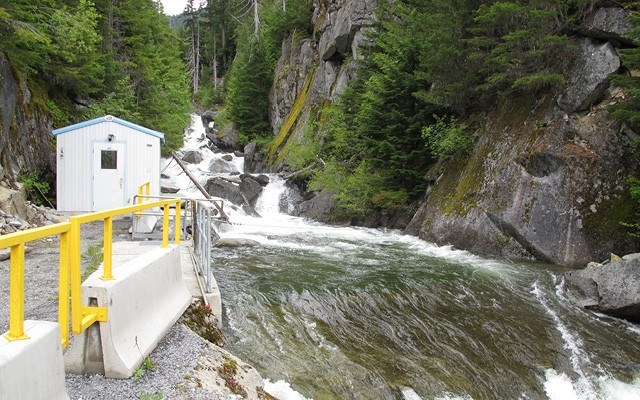T he Resort Municipality of Whistler is budgeting $185,000 to 2019 to deal with any costs associated with the province's new Water Sustainability Act.
The 2015 budget submission includes funds to manage the Water Sustainability Act transitional project, though it isn't clear what the final tally might be for residents and the municipality.
"We don't know how much it is yet," said mayor Nancy Wilhelm-Morden. "We aren't expecting a big change. We've always been charged for surface water, so we don't expect it to increase too much."
Asked if she felt this was a move in the right direction by the province Wilhelm-Morden said: "The municipality hasn't taken an opinion, but personally I think it's a good thing for the province's resources."
The 2015 budget also included a 1.5 per cent increase to water parcel tax and fees. Most British Columbians, including Whistlerites, are connected to a municipal water system and pay a utility bill to their municipality, which holds the water licence.
Under the century-old water legislation there was no cost for groundwater use — underground springs and aquifers. When the new act comes into force next January, users of groundwater, including municipalities, will require a water licence and will be required to pay water fees and rentals. The exception is that individual household wells throughout the province will not be licensed or charged.
According to a release from the province, the cost of water is expected to increase $1 to $2 annually for each household.
The RMOW uses both surface water intakes and groundwater wells to provide water for fire protection and domestic use. The 21 Mile Creek intake is the primary source of water. Supplementing the supply provided by 21 Mile Creek are 14 groundwater wells that draw from underground aquifers.
The new Water Sustainability Act has drawn significant public criticism centred on the fees commercial bottled-water operations pay.
Under the new act they will pay $2.25 per one million gallons of water.
When reached for comment Whistler Water declined to be interviewed, but in an email a spokesperson said: "Whistler Water supports the provincial government in the implementation of the Water Sustainability Act and will fully comply with the new regulations in place.
"With the implementation of the new regulations, there will be an additional cost associated, but it is not something that will impact our business."
According to the province the benefits of the new act include mandatory reporting, better protection for fish and aquatic environments, prioritizing conservation especially during drought and scarcity, enacting area-based regulations to address local needs if required and a process to respond to local pressures on water resources.
However, some feel it is blatant exploitation since companies like Nestlé can draw water then turn around and sell it to the public for profit.
"Christy Clark is selling British Columbians short," explained Liz McDowell, campaigns director for consumer watchdog SumOfUs.org in a press release.
"At a time when water is in scarce supply globally, it is outrageous that Nestlé can draw limitless amounts of Canada's natural resources to sell for a huge profit."
SumOfUs.org started a petition when the government announced that it would be charging $2.25 per one million gallons of water to bottled-water companies, a fee that SumOfUs.org said does not even cover the cost of implementation.
So far the petition has collected 93,558 signatures. It can be found at http://action.sumofus.org/a/bc-bottled-water/.




